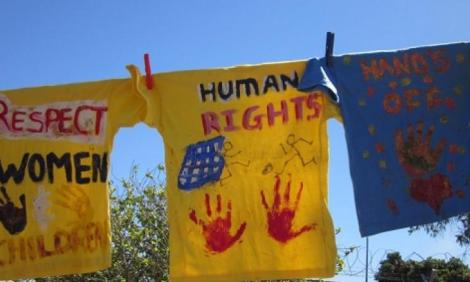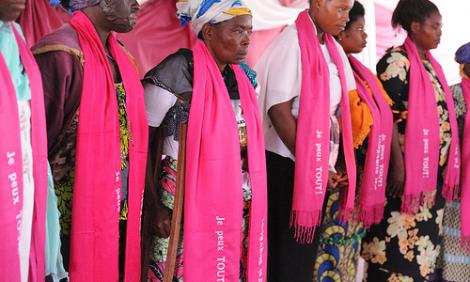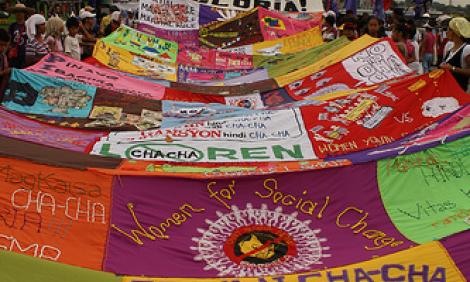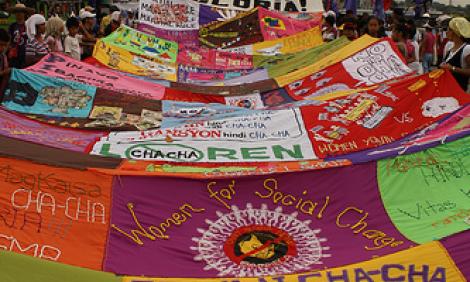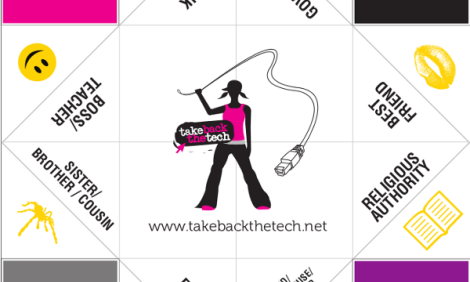Sonia Randhawa
Sonia Randhawa
"Sonia Randhawa is a member of GenderIT.org's pool of writer. She is a director of the Centre for Independent Journalism in Malaysia, a board member of feminist communications organisation ISIS-International Manila and a PhD candidate at the University of Melbourne."
In depth
UPR of South Africa: Connecting the right to communication to women´s rights
South Africa's constitution guarantees freedom of expression, and has been interpreted to include the right to community media and to creative journalistic content. However, these progressive interpretations come in the light of broadcasting, rather than the internet. Online media and its regulation in South Africa fall short of the human rights standards that South Africa has recognised under…
In depth
Going online is the same as going out to a rally
In early April 2012 in Istanbul thirty people from six continents met at the APC “Dialogue on digital security and women's human rights defenders” to discuss regional and global trends on digital security, freedom of expression and freedom of association, and their impact on women's human rights defenders. Katerina Fialova and Sonia Randhawa interviewed two of the participants to interrogate/…
Feminist talk
Equality, non-interference, non-hierarchy: What the net should be
The UN Special Rapporteur on cultural rights Farida Shaheed made an important speech on internet governance in Geneva earlier in May 2012. She stressed the importance of upholding human rights principles online supporting the call of civil society for democratization of internet governance. Sonia Randhawa is urging all of us to not just look at what Farida Shaheed says, but also to take a look…
In depth
Finding the balance: Women's rights and the internet in the Philippines
GenderIT.org writer Sonia Randhawa speak with Jelen Paclarin, executive director of the Women's Legal and Human Rights Bureau (WLB) in the Philippines, about the potential of the UPR to improve the lives of women in Philippines, the emerging forms of technology-related VAW and key challenges in addressing it, and the importance of women's representation in policy-making processes.
In depth
Encontrar el equilibrio: derechos de las mujeres e internet en Filipinas
Entre el 21 de mayo y el 4 de junio comenzará el segundo ciclo del Examen periódico universal (EPU) del Consejo de Derechos Humanos. Uno de los 14 países que se analizará es Filipinas. El EPU es el único mecanismo gracias al cual los estados y gobiernos relatan a los demás países sus logros de promoción de los derechos humanos y los actores no estatales plantean sus inquietudes de un modo no…
In depth
Mapping the intersection of technology and gender-based violence
On 25 November 2011, Take Back The Tech! campaign launched an interactive map that allows internet users to share their stories, local news and personal experiences of gender-based violence they faced online or through the use of mobile phone technologies. As of 7 December, the map has recorded 103 stories from across the globe, with the majority of stories coming from Africa, Latin America and…
Mapping and privacy: Interview with Privacy International's Gus Hosein (audio, 18 mins)
GenderIT.org's writer, Sonia Randhawa, spoke with senior fellow at Privacy International Gus Hosein about how mobile devices and their ability to map our movements are intruding on women's personal privacy and individual autonomy.
In depth
Mapping and privacy: Interview with Privacy International's Gus Hosein
Sonia Randhawa spoke with senior fellow at Privacy International Gus Hosein about how mobile devices and their ability to map our movements are intruding on personal privacy and individual autonomy.
In depth
Mapeando la intersección entre tecnología y violencia de género
El 25 de noviembre de 2011, la campaña lanzó un mapa interactivo que permite que las usuarias de internet compartan sus historias, noticias locales y experiencias personales sobre violencia de género que hayan enfrentado en línea o a través del uso de telefonía móvil. Hasta el 7 de diciembre, ya registró 103 historias de todo el mundo, en su mayoría provenientes de África, América Latina y Asia.…
Feminist talk
¿Cuándo una broma ya no es una broma?
A partir de dos casos recientes, Sonia Randhawa se pregunta ¿cuál es el punto en el que una broma se convierte en un delito? En el Reino Unido se discuten cuestiones sobre privacidad, libertad de expresión y violencia a partir de que mensajes en twitter sean usados para actos delictivos.

